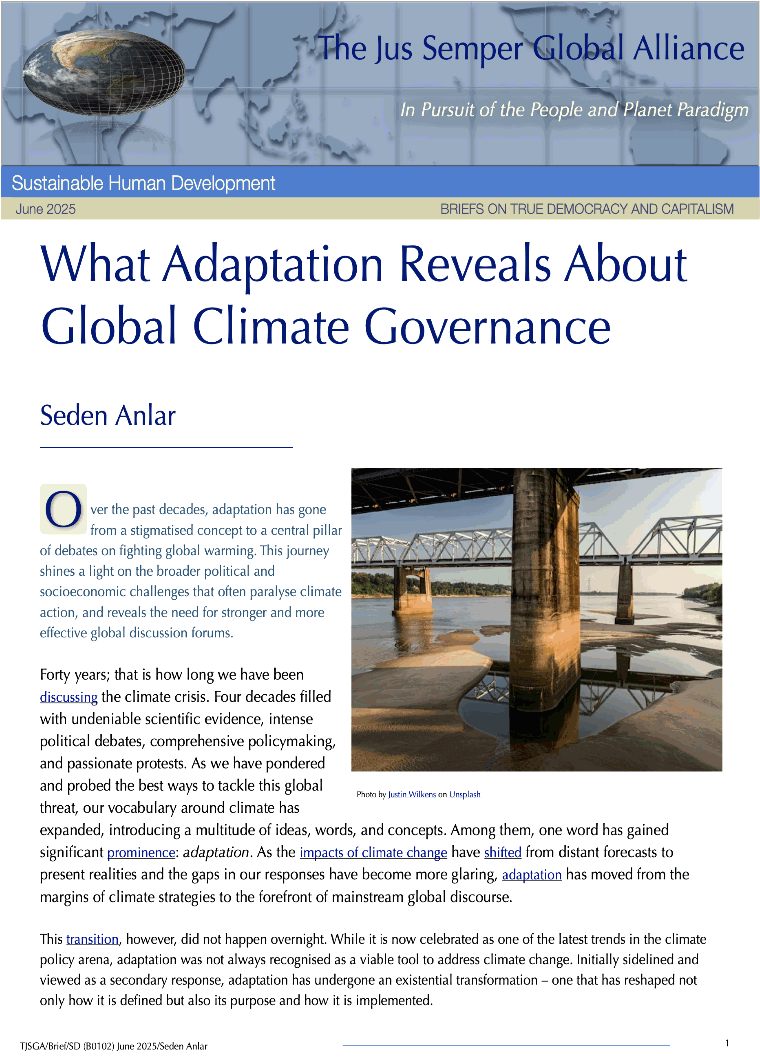What Adaptation Reveals About Global Climate Governance This transition, however, did not happen overnight. While it is now celebrated as one of the latest trends in the climate policy arena, adaptation was not always recognised as a viable tool to address climate change. Initially sidelined and viewed as a secondary response, adaptation has undergone an existential transformation – one that has reshaped not only how it is defined but also its purpose and how it is implemented.
For a full read of this brief, click here or on the picture to download the pdf file.
|

- © The Jus Semper Global Alliance
| Home |  | Resources |  | Economic Data |  | What Adaptation Reveals About Global Climate Governance |


